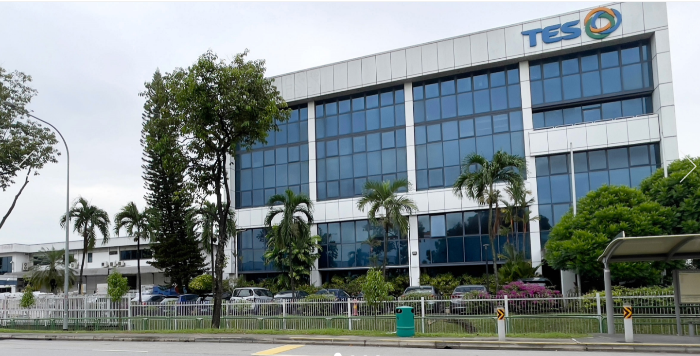M&As
SK Ecoplant buys e-waste recycling firm for $1 bn
The acquisition of TES Envirocorp expands SK's waste treatment services beyond incineration and landfills
By Feb 21, 2022 (Gmt+09:00)
2
Min read
Most Read
Samsung shifts to emergency mode with 6-day work week for executives


CJ CheilJedang to sell feed, livestock unit for $1.4 bn


Affinity to buy SK Rent-a-Car at $572 mn, more deals expected


Keppel REIT to sell Seoul-based prime office T Tower


Samsung Electronics' key M&A man returns; big deals in the offing



South Korea's SK Ecoplant Co. has acquired Singapore-based electronic waste (e-waste) disposal and recycling company TES Envirocorp Pte. Ltd for $1 billion, expanding its waste treatment services beyond incineration and landfills, the company said on Monday.
The construction arm of SK Group signed a definitive agreement in Singapore on Feb. 21 to acquire a 100% stake in TES from Singapore-based private equity firm Navis Capital Partners.
"We are taking a leap forward to grow from the No. 1 environmental service provider at home to become a global environmental service company,ŌĆØ Ecoplant said in a statement.
Established in 2005, TES operates 43 facilities in 21 countries, with major facilities in Singapore, China, Australia, the UK and Germany. Its revenue in 2021 reached S$465 million ($346 million).
TES is a leading e-waste treatment service provider for discarded computer monitors, mobile phones and chargers, TV sets, refrigerators and air conditioners.
It deletes the data stored on discarded electronic products for recycling and extracts rare metals such as nickel, lithium, cobalt and manganese from the electronic and battery waste.
Of some 54 million tons of e-waste produced in 2020, only 17.4% were recycled, meaning more than 80% of metal and plastic used for the products were incinerated or landfilled.
The fragmented e-waste market is expected to nearly treble to $144 billion by 2028 from $50 billion in 2020, according to Allied Market Research, the industry tracker.
Its market growth is being driven by increasing concerns about contamination from landfills, legislation enforcing producer responsibility and rising economic value of electronic waste, TES said in its website.
In 2020, Ecoplant made inroads into the environmental service market by acquiring South KoreaŌĆÖs largest waste treatment company EMC Holdings Co. for around 1 trillion won from Affirma Capital.
Last year, it made bolt-on acquisitions of six other waste treatment companies to become a leading player in the fields of water and medical waste treatment as well as waste landfills.

With high-entry barriers, waste treatment services generate a steady stream of cash and show low sensitivity to economic cycles.
SK Group expects the waste treatment business to create synergy with its oil refining and chemical units, including SK Innovation Co. Ltd., SK Chemicals Co. Ltd. and SK Incheon Petrochem Co. Ltd.
The country's third-largest conglomerate recently expanded its horizon into the biofuel market. In December of last year, SK Inc., the group's holding company, said it would co-invest $50 million in the US-based Fulcrum BioEnergy with a domestic private equity fund, in a bid to advance into the biofuel market.
Write to Jun-Ho Cha at chacha@hankyung.com
Yeonhee Kim edited this article
More to Read
-
 Waste treatmentThe power of rubbish: Korean firms make big money from garbage
Waste treatmentThe power of rubbish: Korean firms make big money from garbageJul 15, 2021 (Gmt+09:00)
3 Min read
Comment 0
LOG IN


